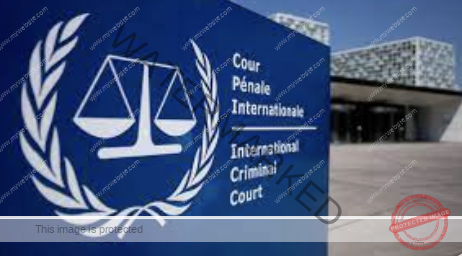The EU’s Stance on ICC Warrants: A Question of Consistency and Global Justice
Hichem Karoui
In recent developments, the European Union has found itself at the center of a complex debate surrounding the enforcement of International Criminal Court (ICC) warrants. This issue has come to the forefront following the visit of Russian President Vladimir Putin to Mongolia, a country that is a signatory to the Rome Statute of the ICC. The EU’s response to this visit, articulated by foreign policy spokesman Peter Stano, raises important questions about the consistency and fairness of international law enforcement.
The EU’s Reaction to Putin’s Mongolia Visit
The European Union, through its spokesperson Peter Stano, expressed deep regret over Mongolia’s decision to welcome Russian President Vladimir Putin. This sentiment stems from the fact that Mongolia, as a party to the Rome Statute of the ICC, was theoretically obligated to arrest Putin based on the ICC prosecutor’s warrant. The EU’s position highlights the complex interplay between diplomatic relations and international legal obligations.
Understanding the ICC Warrant
To fully grasp the situation, we must first understand the nature of the ICC warrant against Putin. The International Criminal Court issued this warrant based on allegations of war crimes and other serious violations of international law. The EU’s strong stance on enforcing this warrant reflects its commitment to upholding the principles of international justice and accountability.
The Question of Consistency
While the EU’s position on enforcing ICC warrants is clear in the case of Putin, a critical question arises: Will this same standard be applied universally? Specifically, the case of Israeli Prime Minister Benjamin Netanyahu comes into focus. The ICC has also issued an arrest warrant for Netanyahu, citing similar charges of war crimes and crimes against humanity.
The Netanyahu Case
The situation with Netanyahu presents a challenging parallel to the Putin case. Both leaders face ICC warrants, yet the international community’s response, particularly that of the EU, appears to differ. This discrepancy raises important questions about the consistency of international law enforcement and the potential for political considerations to influence these processes.
Analyzing the EU’s Approach
We must carefully examine the EU’s approach to these two cases to understand the underlying principles and potential inconsistencies:
- Legal Obligations: Both Russia and Israel are not parties to the Rome Statute, yet the EU insists on the enforcement of the warrant against Putin. This raises questions about the application of ICC jurisdiction in non-member states.
- Geopolitical Considerations: The differing approaches to Putin and Netanyahu may reflect broader geopolitical alignments and strategic interests of the EU and its member states.
- Precedent Setting: The EU’s stance on these cases could set important precedents for future enforcement of ICC warrants, potentially impacting the court’s effectiveness and credibility.
The Broader Implications
The EU’s position on these ICC warrants has far-reaching implications beyond the immediate cases of Putin and Netanyahu:
Global Justice and Accountability
The enforcement of ICC warrants is crucial for maintaining a system of global justice and accountability for serious international crimes. Inconsistent application of these principles could undermine the entire framework of international criminal law.
Diplomatic Relations and International Cooperation
The EU’s approach to these cases may impact its diplomatic relations with various countries, potentially affecting international cooperation on other critical issues such as trade, security, and climate change.
The Future of the ICC
The effectiveness and credibility of the International Criminal Court largely depend on the support and cooperation of the international community. The EU’s actions in these cases could significantly influence the future role and authority of the ICC.
Seeking a Balanced Approach
As we navigate these complex issues, it’s essential to consider potential paths forward that balance the demands of justice with the realities of international diplomacy:
- Consistent Enforcement: The EU could strive for a more consistent approach to enforcing ICC warrants, regardless of the political or strategic importance of the individuals involved.
- Diplomatic Engagement: Engaging in diplomatic efforts to encourage compliance with ICC warrants while maintaining open channels of communication with all parties involved.
- Strengthening International Institutions: Working to strengthen the ICC and other international institutions to enhance their legitimacy and effectiveness in addressing serious international crimes.
- Public Dialogue: Fostering a robust public dialogue on these issues to increase awareness and build support for consistent application of international law.
Conclusion
The EU’s response to the ICC warrants for Putin and Netanyahu presents a critical juncture in the evolution of international criminal justice. As we move forward, it is imperative that we address the questions of consistency, fairness, and effectiveness in the enforcement of international law. Only through a balanced and principled approach can we hope to build a truly just and equitable global order.
The coming months and years will likely see continued debate and development on these issues. As global citizens, we must remain engaged and informed, advocating for a system of international justice that is both fair and effective. The decisions made today will shape the landscape of global accountability for generations to come.
